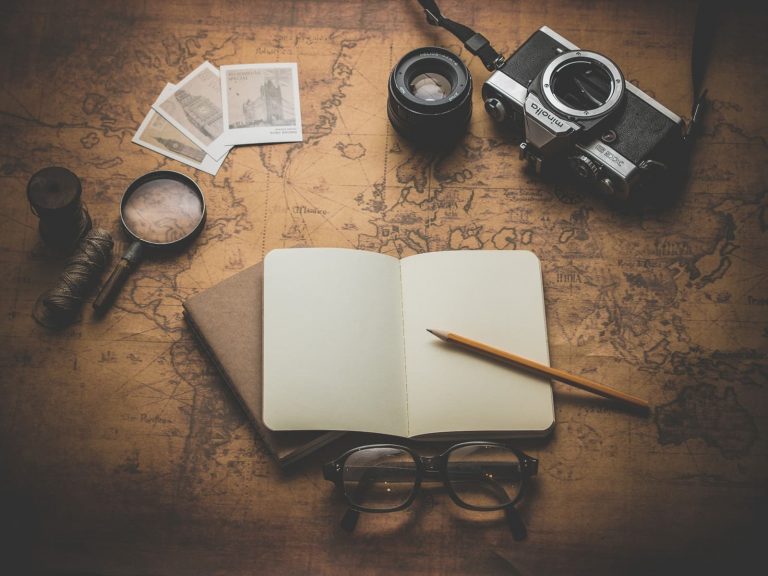Trip Planning & Practical Info
Trip Planning
What is included in the price of my trip?
Accommodation, transfers with an English speaking driver, day tours of your choosing, safari game drives if staying at a safari lodge or tented camp, meals at safari lodges and tented camps, park fees and government taxes are included in the cost of your custom-made trip. If you wish, we can also book car rentals and international and inter-Africa flights, although some of our clients wish to use airline miles and will book flights on their own.
Is there a single supplement?
The single supplement is one of the most dreaded things a solo traveler will face. Luckily, we have “no single supplement options” for solo travelers so that they are not charged more just because they are traveling alone. Not every accommodation property waives the single supplement, however, and they sometimes will base it on the season. We will work with you to help find a suitable option if you are traveling solo.
When is the best time to go to Africa?
It depends on the country and what you want to experience. Visit the “When to Go” sections of the South Africa, Kenya and Botswana pages to see the best times to go.
What travel documents do I need?
Passport – A valid passport is required when entering a country in Africa. Note that some countries require your passport to be valid up to 6 months after your return home date, as well as having at least 2 blank passport pages. Make sure your passport meets these guidelines or you may be turned away. Don’t be that guy/girl! If you need to get a passport or have one renewed, apply several months in advance to ensure ample processing time.
Visa – Some countries require a visa in order for you to enter. To find out if you need one, go to https://www.travisa.com/Visa_Search and enter your destination, your country of citizenship, and purpose of travel. If you do need a visa, Travisa can help you obtain one, or you can contact the embassy or consulate of your destination country located in your country of citizenship. I recommend applying for at least 2 months in advance of your departure date to allow enough time for processing.
Travel Insurance – I know, I know…no one likes the word, but travel insurance is crucial to have for any big trip that you are taking. Since safaris are usually booked far in advance, a lot can happen during the time between making your booking and your departure date (health issues, a family emergency, birth of a child/grandchild, etc.). If something comes up that requires you to cancel your trip and you don’t have trip cancellation insurance, you will lose your deposit and potentially the entire cost of your trip. Ouch! For most people, that’s not money they are ok with throwing away. Keep in mind that your medical insurance plan may not cover you when you are out of the country. Also, if you were to get injured or needed serious emergency medical care, an appropriate hospital may not be anywhere near you or impossible to get to in time without a medivac evacuation flight. These flights can cost hundreds of thousands of dollars which you could be responsible for if you don’t have medivac coverage. Comprehensive travel insurance is so important especially when you’re taking a trip of a lifetime, so I strongly recommend purchasing coverage to protect yourself and to give you (and your bank account) peace of mind. Click here or on the picture below to get a quote for travel insurance.
Make copies of important documents (passport, itinerary, etc.) in case of an emergency or if your passport is lost or stolen.
Book inter-country flights early since they can sell out quickly.
Register your travel dates and location with your country’s foreign affairs department to allow the nearest embassy to give you assistance in case of an emergency (ex. natural disaster, terrorism, etc.).
For U.S. citizens, enroll in STEP (Smart Traveler Enrollment Program). If possible, consider taking carry-on luggage only. So many times I’ve seen people arrive, about to head out to a remote area to go on safari only to be without their bags. It could take airlines days to get your luggage to you if they find it, so it’s best to ensure that you always have your bags. Make copies of important documents (passport, itinerary, etc.) in case of an emergency or if your passport is lost or stolen.
If possible, consider taking carry-on luggage only.
So many times I’ve seen people arrive, about to head out to a remote area to go on safari only to be without their bags. It could take airlines days to get your luggage to you (if they find it), so it’s best to ensure that you always have your bags. Pack light!
What type of accommodation options are available in Africa?
From luxury safari lodges to comfortable tented camps, from guesthouses to boutique hotels to big name hotels, Africa has a place for you to rest your head at night. We can help you choose the right accommodation for your destination and taste. Contact us to start planning your journey.
Are there any local festivals I can attend?
South Africa:
Cape Town Minstrel Carnival – colorful, costumed entertainers parade down the streets playing traditional and jazz music (beginning of January)
Cape Town International Jazz Festival (late March or early April)
Splashy Fen – rock and pop music festival at a farm near Underberg, KwaZulu-Natal (Easter weekend)
Grahamstown National Arts Festival (July)
Knysna Oyster Festival (July)
Oppikoppi Bushveld Festival – music festival held on a bushveld farm, north of Johannesburg (August)
Practical Info
What about tipping?
It is important to remember that service industry workers are dependent on tips to supplement their typically low wages. However, only tip if you think the service given is deserving.
- Safari Guide – $25 per couple per day or more
- Safari Tracker – $12 per couple per day or more
- Restaurants – 10% – 15%
- Taxi – 10%
- Porter – 1 USD, 1 Euro, or equivalent, per bag
- Safari or hotel butler – 12 USD, 10 Euro, or 150 ZAR per couple per day
- Safari or hotel general staff (split equally among the staff) – 12 USD, 10 Euro, or 150 ZAR per couple per day
- City tour guide (half day tours) – 12 USD, 10 Euro, or 150 ZAR per couple per day
- City tour guide (full day tours) – 25 USD, 20 Euro, or 300 ZAR per couple per day
Service in restaurants is very, very slow. Just sit back and relax. Use this extra time to reflect on the day’s adventures.

What languages are spoken in Africa? Will there be a language barrier?
There are well over 1,000 different languages spoken throughout the African continent! The local language that you may encounter depends not only on the country but region or even village that you may be traveling through. English is spoken throughout the African tourism industry so you won’t have to worry too much about the language barrier. It is always good, though, to look up and learn a few basic words in the local language of the area you will be staying in.
Are cell phone service and GPS signals reliable in Africa?
Cell phone service is available in most parts of Africa, especially in cities. I’ve even had service while on safari in the middle of the Maasai Mara in Kenya. Reliability is good in cities but more unpredictable in more rural areas. Most hotels, safari lodges and tented camps offer wifi so you will rarely be unable to keep in touch with those back home. You should contact your cell phone provider before traveling to Africa. Most of the big providers offer international plans or you can get a SIM card compatible in the countries you’re traveling to.
What issues should I be sensitive to while traveling in Africa?
In South Africa race is still a sensitive subject. Apartheid ended in the 1990s but racism can still be found from both whites and blacks. Use discretion when talking about race.
Is Africa a gay-friendly place?
Acceptance of LGBT people varies from country to country in Africa. Homosexuality is illegal in many African countries. South Africa, however, is very gay-friendly, and same-sex marriage is legal here. Cape Town is the most openly gay-friendly city in Africa and has an active club scene. It is important to note that public displays of affection (between gay or straight couples) are often considered offensive so it is recommended to be discreet while traveling.

